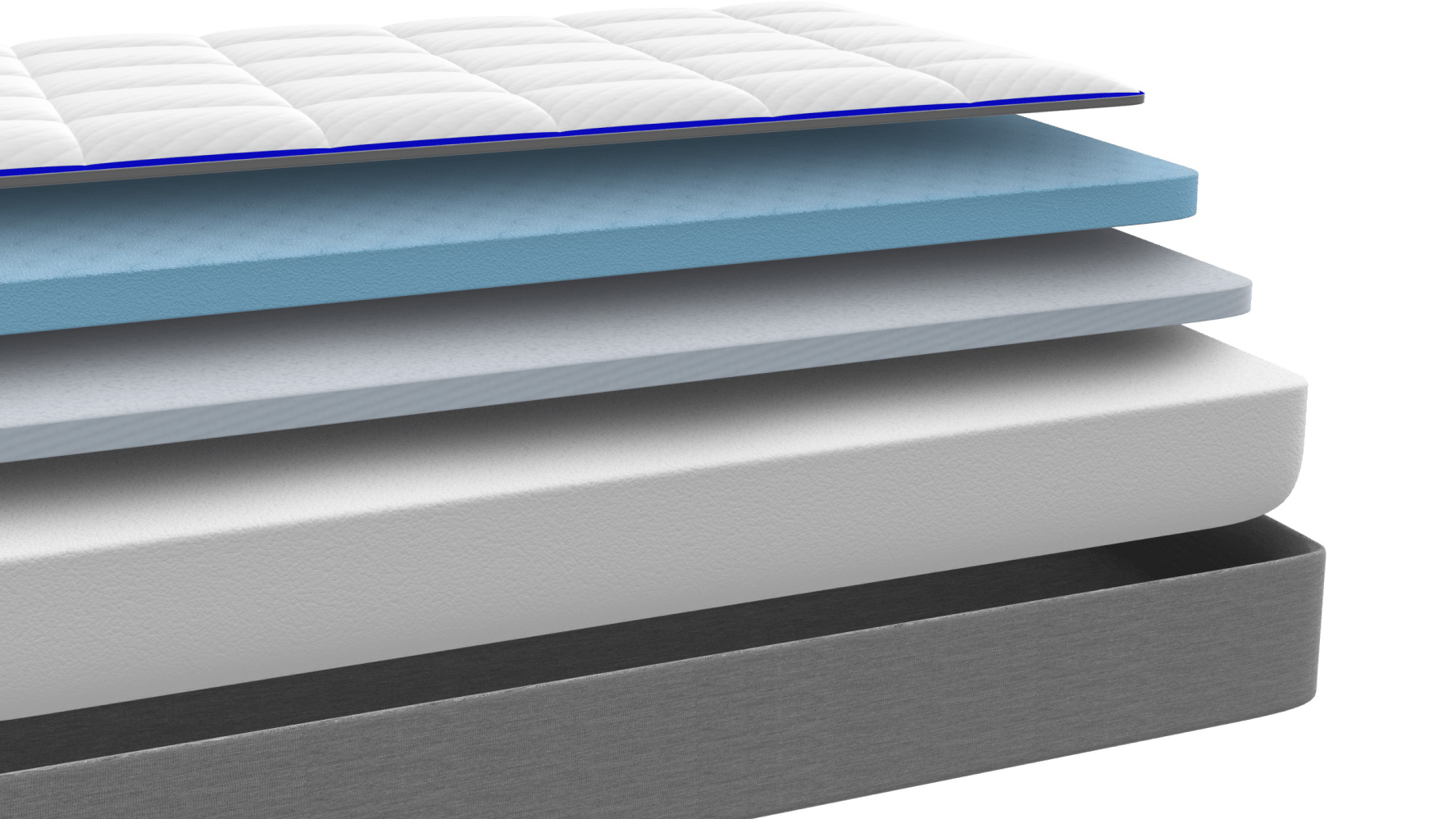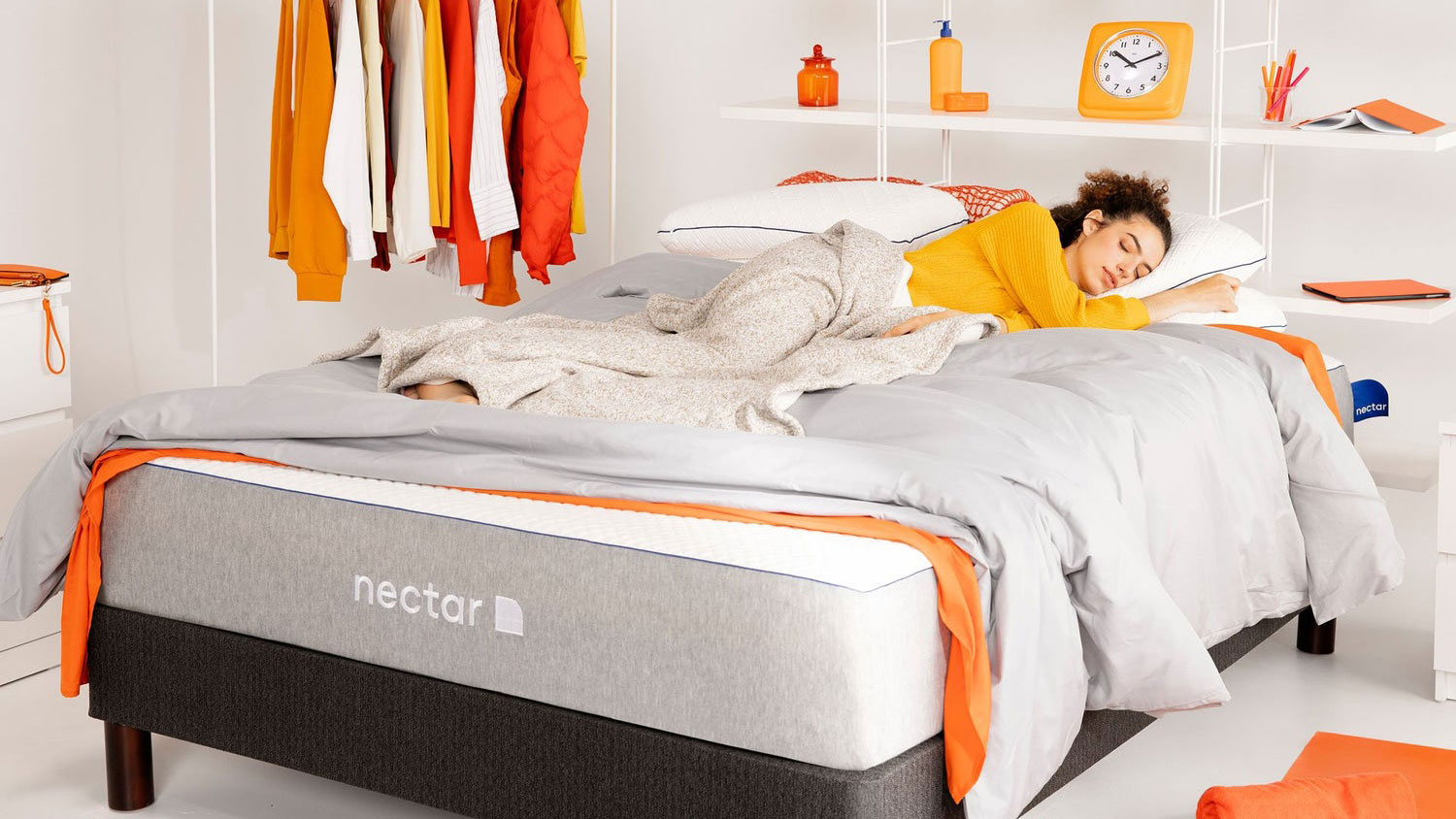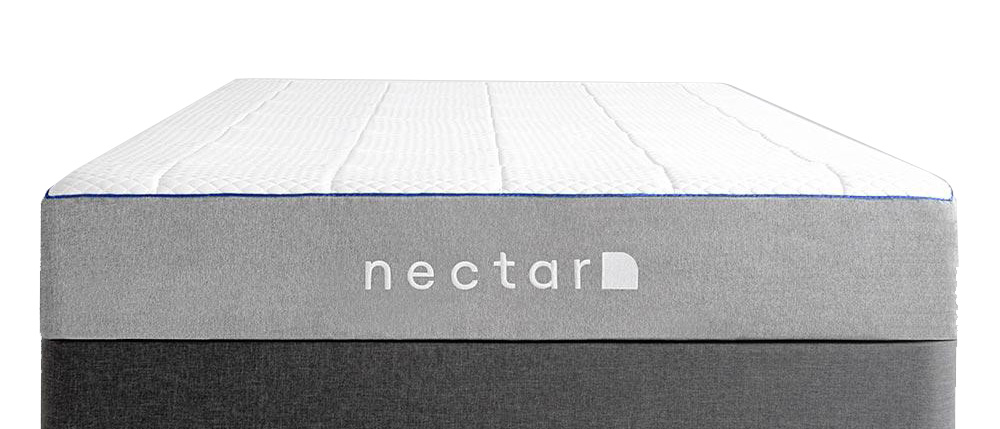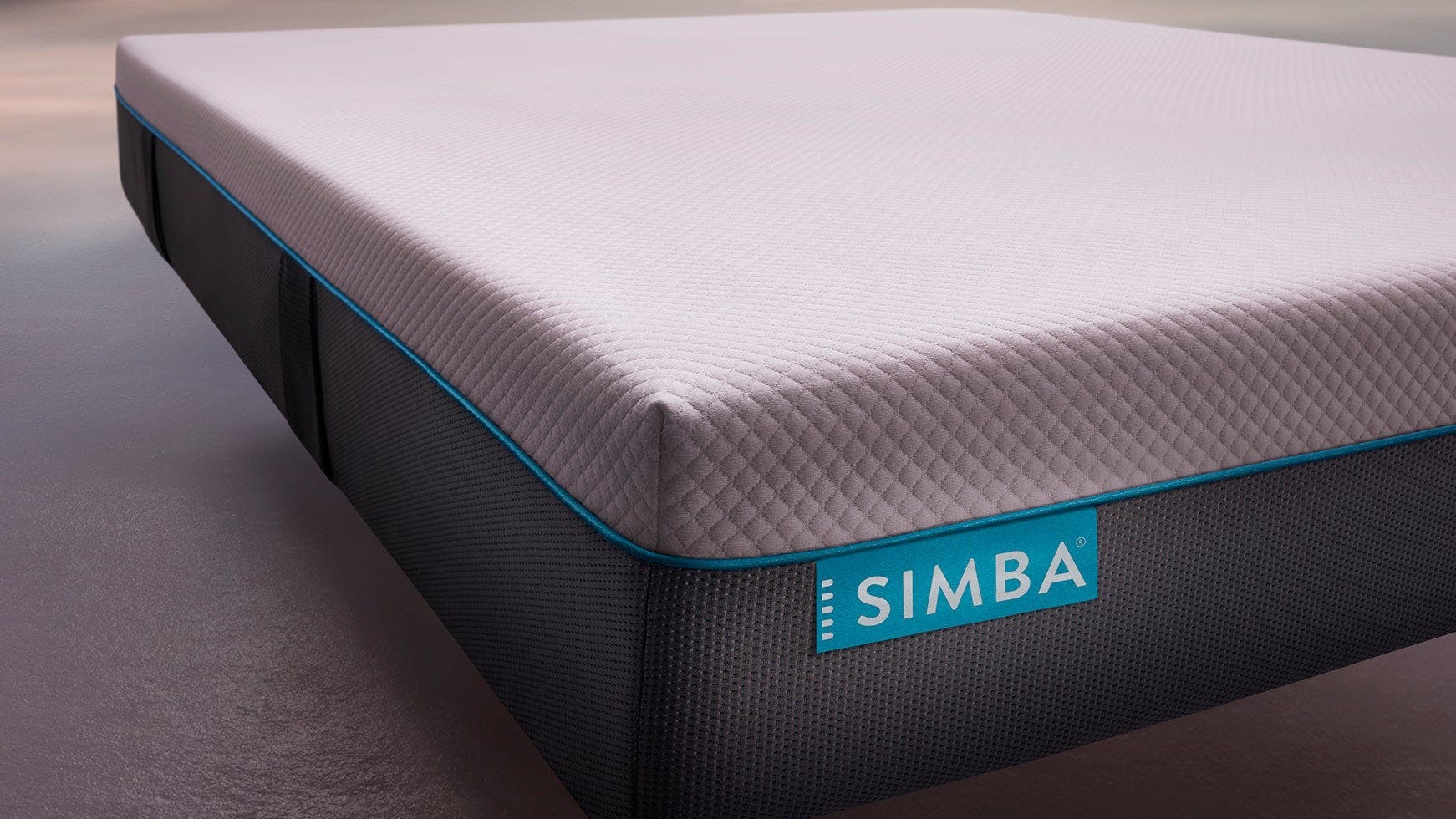Nectar vs Simba: what’s the best mattress brand to buy?
Both brands want your money, but who makes the better mattress? T3's Nectar vs Simba comparison has all the answers

Get all the latest news, reviews, deals and buying guides on gorgeous tech, home and active products from the T3 experts
You are now subscribed
Your newsletter sign-up was successful
Nectar and Simba are both known for their quality, bed-in-a-box mattresses. But in most ways, they’re very different. Nectar is a young company, founded in 2016, while Simba has been around since 1979. Simba is a British company, while Nectar is based in the US. Simba produces a range of hybrid mattresses for the UK market, while Nectar offers hybrid and memory foam options.
If you’re looking for the best mattress for your money today, which brand should you go for? In this article, we’ll examine what both Nectar and Simba have to offer, and which scores better on design, comfort, pricing and customer service.
Nectar vs Simba: design
Nectar offers you the choice of two mattresses. The standard, and more affordable model is the Nectar Memory Foam mattress. This 25cm deep, all-foam mattress is made up of a temperature-regulating polymer cover and three layers: a breathable upper layer of memory foam, a transitional layer of standard memory foam and a thick base of 7-zoned support foam.

Nectar Memory Foam mattress
Alternatively, there’s the Nectar Hybrid Mattress, which is also 25cm deep, but also incorporates an extra layer of 1,600 open coil springs to the construction. Both mattresses are medium firm, but Nectar describes the memory foam mattress as a slightly firmer 6.5 to the hybrid mattress’ 6.
Simba offers four hybrid mattresses, the standard being the Simba Hybrid Mattress. This 25cm deep, medium-firm mattress combines memory foam with pocket springs. Within a zip-off, hypoallergenic cover there are four layers of filling: 2.5cm of open cell Simbatex foam, 25mm of 2,100 cone-shaped springs; 4.5cm of support foam; and 16cm of high-density foam base with seven areas of zoned support.
The Simba Hybrid Pro Mattress is a deeper and plusher mattress, with seven layers including the cover, and a 28cm-depth. At the top of the range is the Simba Hybrid Luxe Mattress, which has 10 layers of filling including the cover, bringing the depth up to a generous 31cm.
At the cheaper end, there’s the Simba Hybrid Essential Mattress, which features just four layers of springs and foam, and is just 20cm deep.
Get all the latest news, reviews, deals and buying guides on gorgeous tech, home and active products from the T3 experts
Verdict: draw (but win for Simba at the luxury end)
The Nectar Hybrid and Simba Hybrid mattresses are very closely matched in terms of design and construction. However, at the upper end of its range, Simba is the clear winner: its top-end Pro and Luxe mattresses offer greater depth, luxury and sophistication (although you'll pay accordingly). That said, if you prefer a memory foam-only mattress, Nectar is the only place to turn.
Nectar vs Simba: comfort
When it comes to comfort, the first question is whether you prefer an all-foam mattress or a hybrid that combines both springs and foam. Some people feel the former wonderfully cradling and like floating on air; others feel like they're trapped in quicksand. If you tend towards the former, then the Nectar Memory Foam mattress is your sole option amongst these two brands.
If you’re less keen on memory foam, though, or simply neutral, then the standard hybrid mattresses from both companies are well worth considering. So which wins out between the Nectar Hybrid and the Simba Hybrid?

Simba Hybrid mattress
Despite their differing construction, in truth both mattresses feel very similar. Both offer the same level of medium firmness. And in practice, both offer excellent spinal support, impressive motion isolation and a high level of general comfort.
As medium-firm mattresses with a 25cm depth, we’d recommend either for sleepers of light or average build and weight, and back and side sleepers. They may be less suitable, though, for heavier people, and front sleepers.
But while there’s no clear difference in comfort between Nectar and Simba’s main mattresses, the same cannot be said once you climb in price to Simba’s premium models. Both the Simba Hybrid Pro and Simba Hybrid Luxe mattresses offer a significantly higher degree of comfort and luxury than the standard models.
As our reviewer said of the Simba Hybrid Luxe: “The Simba Hybrid Luxe is right up there with the most comfortable mattresses I've ever slept on. I test a lot of mattresses, if you're wondering how impressive you should find that statement.” Currently, Nectar has no equivalent mattress to rival either this of the Simba Hybrid Pro (in the UK market at least), so that’s a win for Simba.
Verdict: draw (but win for Simba at the luxury end)
At the top end of its range, Simba's mattresses offer a higher degree of comfort and luxury than anything produced by Nectar. However, in the mid-range bracket, there's nothing to separate the two standard models, the Nectar Hybrid and Simba Hybrid.
Nectar vs Simba: the small print

Nectar Hybrid mattress
Nectar offers free shipping and what they call a ‘forever warranty’. That means there are any flaws in workmanship or materials, they’ll repair or replace your mattress for as long as you own it. If you’ve had it for 10 years or fewer, they’ll send you a new one. After that, they’ll repair your mattress. Nectar also offers you a full year (365 nights) to trial your mattress. If you decide for any reason to return it, they’ll arrange to pick up the mattress from your home and give you a full refund.
Simba offers free delivery, a 10 year guarantee, and a 200-night in-home trial. If you don’t like it, contact the company and they’ll arrange pick up and a full refund. If you didn’t buy directly through Simba, but through a third-party retailer like John Lewis, they’ll still honour the refund; you just have to arrange it through the retailer itself.
Verdict: Nectar wins
The brand’s year-long free trial and forever warranty leave Simba in the dust, and are unmatched in the mattress industry as a whole too.
Nectar vs Simba: pricing
The Nectar Memory Foam mattress is on Nectar's website for £475 (single), £600 (double), £650 (king) and £725 (super king). The Nectar Hybrid mattress is similarly priced as follows: £625 for a single, £750 for a double, £850 for a King, and £900 for a Super King.

Nectar Memory Foam mattress
Simba’s prices are generally around the same price, if not higher. The Simba Essential is available on Simba's website from £749. The Simba Hybrid costs from £799, the Simba Hybrid Pro from £1,159, the Simba Hybrid Luxe from £1,579 and the Simba Hybrid Ultra from £2,599.
That said, prices rise and fall all the time, and all sorts of discounts and deals are constantly cropping up. So it's worth checking out what the prices are on any given day by checking our constantly-updated guides to the best Nectar mattress deals and the best Simba mattress deals.
Verdict: Simba wins
The brand’s mattresses are competitively priced overall. And at time of writing, the Simba Hybrid is significantly cheaper than the comparable Nectar Hybrid. That said, do check our guides to see if there are any discount codes on the day you buy.
Nectar vs Simba: verdict
Whether you should opt for a Nectar or Simba mattress, ultimately, will vary depending on what you’re looking for. If you’re seeking a foam-only mattress, then Nectar is the only brand to offer one; similarly, only Simba has a cheap, basic mattress that’s under £400.
At the other end of the spectrum, if you want a very high degree of luxury and comfort, then the top-of-the-range Simba Hybrid Pro and Simba Hybrid Luxe are the ones to be looking at.

Simba Hybrid Pro mattress
Where it gets tricky to choose is between the Nectar Hybrid and Simba Hybrid. Both offer a similar, if not identical level of comfort and support, and so deciding between them really comes down to the small details.
If you’re uncertain how you’ll get on with a new mattress, Nectar’s 365-day trial period and forever warranty will put you at ease. However, the 200-night trial and 10-year warranty offered by Simba is not too much of a climbdown from that. And so if you can get a Simba Hybrid for significantly less (taking all of the current deals into account), that would probably edge it for most people.

Tom May is a freelance writer and author of the book, Great Ted Talks: Creativity. He has been editor of Professional Photography magazine, associate editor at Creative Bloq, and deputy editor at net magazine. He has also worked for a wide range of mainstream titles including Radio Times, NME, Heat, Company and Bella.

